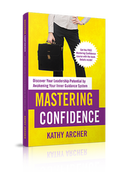|
Do you ever watch athletes and wonder - How? How the heck do they get where they are? How do they go in front of thousands of people and perform while you struggle to get the words out in a meeting of 10 peers? An athlete seems to bounce back after they lose. You, on the other hand, would like to stay home the day after you say something less than eloquent at a business meeting.. The trick you can learn from athletes is this: Do not be afraid to fail. Athletes see success as a process They can’t always win, especially in the beginning. Athletes must work their way up. High performing athletes view failure as opportunities for learning. What does an athlete do?
If you were to apply these same lessons to your leadership, consider what you might get. Practice You might decide on one skill you are working on each month and work hard at it. Perhaps it is patience, planning better for meetings or staying focused on a task. The practice you put in will result in a better performing you. Get back up When something knocks you down, rather than wallowing in it, you’d get back up. No need to complain about it at the water cooler. Just bounce back and keep moving forward. Accept Feedback One of the things we often do is resist the feedback in our performance appraisals. I mean the stuff we don’t like. Instead, we might be more open to what we hear. By getting curious about feedback instead of resisting to it, we improve our performance. Learn from our mistakes The key to learning from mistakes is to look for the lesson and then apply what you learned. Perhaps you neglected to complete the written part of formally disciplining an employee. Then, similar incidents happened. Because you didn’t have the documentation for the last two, you can't move to dismiss them the 3rd time around. The lesson is to keep your paperwork up to date. But if you don’t do anything different in your processes, it means you didn’t apply the lesson. A new system or habit for documenting would need to be embarked. Look to others for guidance Do you have a mentor, a guide or a coach? You should. These are the people you go to for learning? We all need a wise, experienced person to point us in the right direction. Exercise GRIT Try again and again with perseverance and passion to meet your long-term goals. This is developing your grit. Grit is perseverance and passion for long-term goals. Grit is the ability to dig deep, even when the going it tough. We all could benefit from more of that. Applying these lessons in leadership When you put all of this into practice, you will find you have more courage to step into some of the more uncomfortable places you may find yourself. But in doing so, you will find more courage and thus be more confident. The more self-assured you find yourself, the more boldly you’ll step out next time. Courage and confidence go hand in hand. Athletes know they need to trust the journey and have faith in the process It’s a learning adventure. Mistakes and failures are a part of it. But with the mindset to learn and grow and access to wise guides along the way, the journey is far easier. You'll find this too when you apply these lessons to your leadership journey. You'll have more courage to be your most powerful self.
0 Comments
If you've said or done something you regret at work lately, this is for you. We've all been there. Losing it is embarrassing! It also doesn't help you gain respect from your employees. Many times I said something I regretted Years ago, as I was yelling at my admin support, I was not controlling what I was saying. I'm pretty sure the words just spewed out of my mouth without any conscious thought, preplanning or concern for their impact. The effect was damaging to my relationship. In my early career as a leader, I truly lacked emotional intelligence. Emotional Intelligence is Important for Leaders Emotional intelligence is the ability to become aware of our emotions and manage our emotions. Both of those are critical in leadership, especially when dealing with challenging situations. Emotional intelligence, a term coined by Daniel Goldman, is the capacity to be aware of, control, and express one's emotions, and to handle interpersonal relationships judiciously and empathetically. The first key to increasing your Emotional Intelligence is self-awareness You must be aware of what you are thinking and feeling. A million thoughts are going through our minds at any given moment. Most of those thoughts are unconscious. It is our thoughts that create our emotions and then how we act. We need to get more aware of those thoughts before they hijack our emotions.
Step #1 - Pay attention to your thoughts Notice when you think someone is not doing something right, doesn't care about their job, or is out to get you. Become more aware when you are critical of yourself or judging someone's motives. Try naming your feelings.
Step # 2 - Challenge your thoughts
Step #3 – Manage your thoughts After you become aware of your thoughts, you can choose to change them. When you change your thoughts, you change your emotions. When you notice that you’re angry because the staff has not done what you thought they should do, you can consciously plan your response rather than simply reacting out of anger. The first response might be:
Grow your Emotional Intelligence, grow your leadership When you work on your emotional intelligence, you work on your leadership. When you are better able to recognize, understand, and manage your emotions, the way you lead will change for the better. Learn more about emotional intelligence in my book Mastering Confidence: Reach Your Leadership Potential by Awakening Your Inner Guidance System. In it, you'll discover a system that you can use in your already busy days, to become more emotionally intelligent and confident! All of us have done the mindless clicking from our inbox to Facebook, back to our inbox. It’s not Facebook’s fault. We got distracted long before social media existed. The reason we are clicking away mindlessly is not because we get distracted. It is because we are avoiding something. I was a master at avoiding Before the Facebook days, I would water my plants, re-organize binders of information I’d never look at again or chit chat with an employee about the weather, our kids or the latest community gossip. All the time, I had work to do. I was doing other things, simply to avoid the work I didn't want to do. I didn’t want to: • Complete the dreaded paperwork. • Have a conversation with staff about their performance. • Write the report, proposal or contract that was on my desk. To get at all of those tasks required a measure of self-control. I had to be disciplined. I needed to exercise my willpower. We need to exercise willpower Willpower is the age old skill of self-control, restraint, strength, and determination. Willpower happens in your head. Our mind-chatter tries to get us to avoid pain. That inner dialogue suggests to us, subconsciously, that doing the work will hurt. Our inner voice says, that somehow if we do the task in from of us, it will be painful, hard or troublesome. So instead, that little gremlin inside suggests we scan the newsfeed instead. We must be determined to stay on task It takes a level of resolve to push past that and get to work, especially agonizing jobs. To stay on task, get done the important work and leave feeling productive at the end of your day, you must activate your willpower. The research on willpower can help us There are three parts of willpower according to willpower researcher Kelly McGonigal; I will, I won’t, I want.
Get clear on the big picture and what's haunting you today Many people tie the I want element to something grandiose such as, “I want to live a long healthy life”. This is important, but only part of the puzzle. You must also look at what the smaller parts of the I want element to help you when the donut is right in front of you. Instead, when we get really clear about why we want it in the nearer future or in a smaller, more meaningful way, it’s easier to be strong-willed. For example, I might avoid the donut today because I want to fit into that dress next month. Applying willpower at work Now let us tie willpower back to day-to-day work. What are you trying to accomplish at work? Let’s look at my examples from earlier.
Practicing willpower makes you happier When you practice accessing your willpower, you will find you are better able to get through some of your more challenging work. It will engage your inner desires to do important, meaningful, but sometimes difficult tasks. In doing so, you will feel more accomplished and confident. Activation your willpower finds you being more productive and going home at the end of the day, a happier person. Each one of us has been through the wringer more times than we care to remember as leaders. Leaders take a lot of hits From challenging staff, and mean bosses, to simply exhaustion from an overwhelming workload. Most, leaders simply knuckle down and try to power through. Leaders neglect themselves The problem is, incident after incident, hit after hit, we just keep adding it on to our already damaged bodies, minds, and souls. As we pile on damage, our confidence deteriorates. We become less effective and find less joy in what we do. This decline is because we never take true, time to heal. It's time for healing Healing. That word doesn't seem to fit with leadership. But they must go together. If you want to be an effective, powerful and happy leader, you must add healing to your world. Injuries require healing time We have all had a little scratch that we didn't think much about and it just went away. A pulled muscle in your back likely caused more thought and attention to have it heal. The same is true in varying levels of broken bones, serious strains or when someone has a heart attack. If we don't give a physical injury time to heal, it continues to aggravate us. We may reinjure it easier. Unchecked, injuries can lead to other complications. It is time for a mindset shift A harsh comment from a boss or board member can sting. Persistent challenging behaviour from a staff can drain our energy and damage our courage. Long hours, high stress and extreme pressures are injuries. They hurt us. Some of the injuries hurt us physically, causing muscle tension or fatigue. Other injuries damage us psychologically. Often hardest hit, is our confidence. We start to question ourselves Leadership injury, trauma or damage, challenges our confidence. We begin to question ourselves:
The answer to all three of these questions is YES!
You have to believe That is where confidence comes in. You have to believe you have what it takes to lead and to lead fully. If your ankle is still sore, you won't play full out. If you are unsure if your back can handle it, you will not go on that big hike. If your heart hasn't healed, you won't be running around on the playground with your grandchild. If you don't heal, you lose confidence in your abilities. If your heart hasn't healed, you won't be your powerful self When you haven't healed from the hurtful comments you received, you will stay quiet. If you haven't taken the time to reconcile the last attack on you at the staff meeting, you'll be hesitant to bring forward the next issue that needs to be addressed. If you don't heal from each incident small or large, they will simply continue to pile up on each other.
Restore your confidence When you take the time to recognize the damage inflicted by the day-to-day realities of leadership, it gives you the opportunity to do something about it. Recognizing the damage and then compassionately dealing with it will put you back on the right track to restoring your confidence. If you need some help to restore your confidence, grab my book Mastering Confidence: Discover your leadership potential by awakening your inner guidance system. In it, you'll see how I dealt with the trauma I experienced as a leader and be guided through a system that will help you restore your confidence. Mind chatter:
The Voice These gremlins in our mind have a name. They are called Resistance. Resistance is the voice inside us that keeps us small It prevents us from doing anything out of the norm. It is working very hard to keep things status quo. Resistance shoves us away from our truly important work. It distracts us from doing the work that will have our strengths and our greatness shine. Resistance prevents us from meeting our potential. Resistance might show up for you as follows:
Instead of working on these things:
"Don't rock the boat" Resistance whispers Resistance job is to keep things status quo But status quo means no change. It means you will continue to feel stuck and trapped. Resistance robs you of joy, happiness, and fulfillment. If you don’t change, nothing will change. This is how it looks in your daily work Resistance shows up as fear, doubt, procrastination, perfectionism, distraction and withdrawal.
Here is what to do Move through it. Resistance is a self-made wall. It’s the mental block you have created in your mind. Fear is internal. You create doubt. Only you allow yourself to get distracted. It's time to get control of the mind chatter. Step #1 – Increase your AWARENESS of your mind chatter Listen to what is going on in your mind. It’s the constant dialogue that goes on inside your mind that is an important piece. The thing you must realize is that you can control it. It is up to you to notice and then to talk back. Step # 2 - Identify your VALUES and your GOAL. Why is it important that you move this barrier or step through this wall? Is it because you are working too many hours and you value your time with your family? Reminding yourself of that goal will help you to pull you through the wall that the voice of Resistance has built. Step # 3 – Persist, PERSIST, Persist Be determined to move through the wall. Stick with it. Come back to the thing you want, again and again. Sheer will and drive will get you past resistance and moving to what you really want. Examples of moving through Resistance The Resistant voice: It’s not quite right. I can’t send it yet. The voice of Confidence: Actually, it’s good enough. It’s my best, and I need to move past this. Hit send now! The Resistant voice: She’s with Cindy. I can’t address the issue now. The voice of Confidence: So ask her to come to your office. Don’t put this off again. Deal with it now. The resistant voice: I’m worried she’s going to be mad The voice of Confidence: She might be mad. So? You’d be mad too. That doesn’t mean I don’t have the right to address it. Start to pay more attention to the voices in your head. Take control of what you are saying to yourself. Persevere. If you get connected to why you want something, the determined, confident voice will win. |
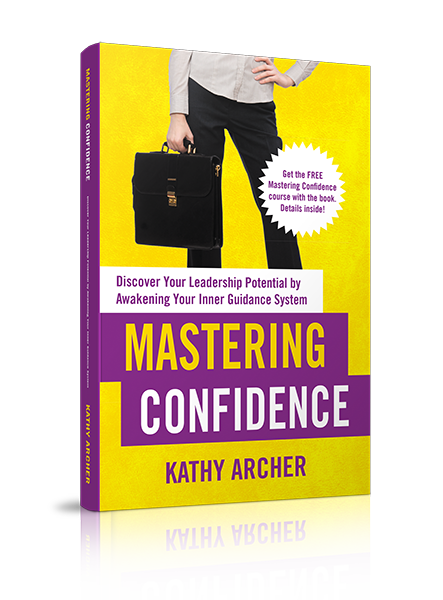
Available on Amazon
Archives
May 2024
|
|
Leadership TRAINING for Nonprofit Leaders
Become a confident and competent nonprofit Leader: Join The Training Library membership Executive and Leadership COACHING Leadership Coaching for Nonprofit Executives, Leaders and ManagerCoaching |
PODCAST for Nonprofit Leaders
The Surviving to Thriving podcast: Strategies, systems and support to lead your nonprofit with confidence FREE RESOURCES to Grow your Leadership Skills Free Leadership Training Resources, Worksheets and Templates |
Become a CONFIDENT LEADER
|


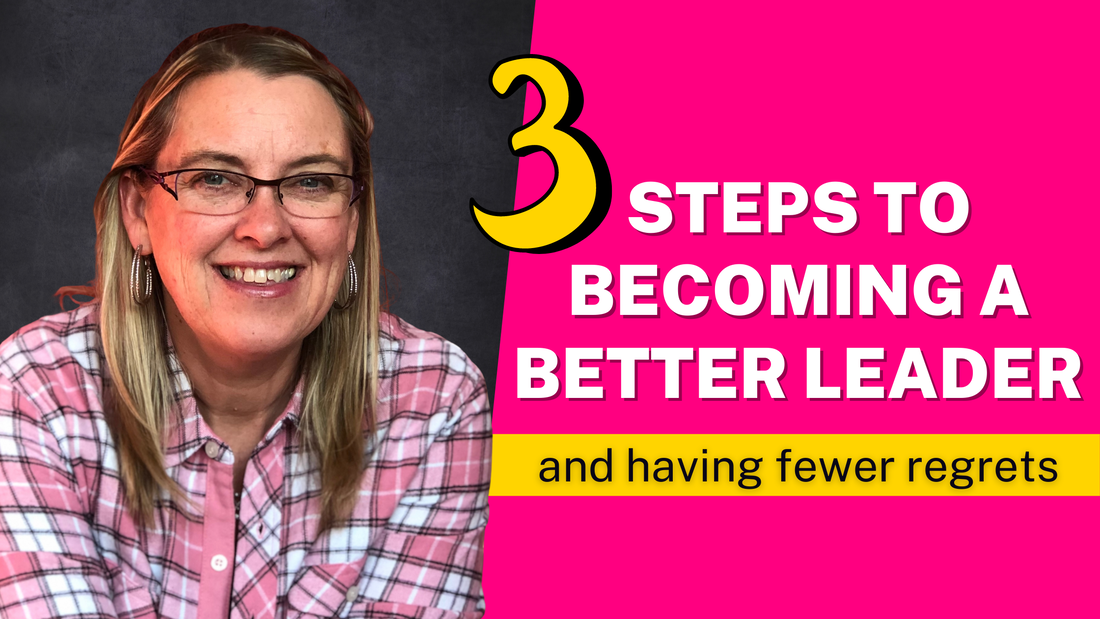
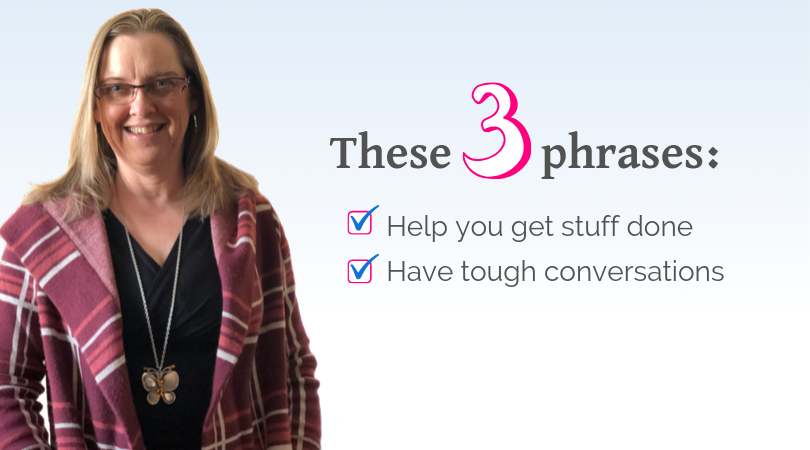



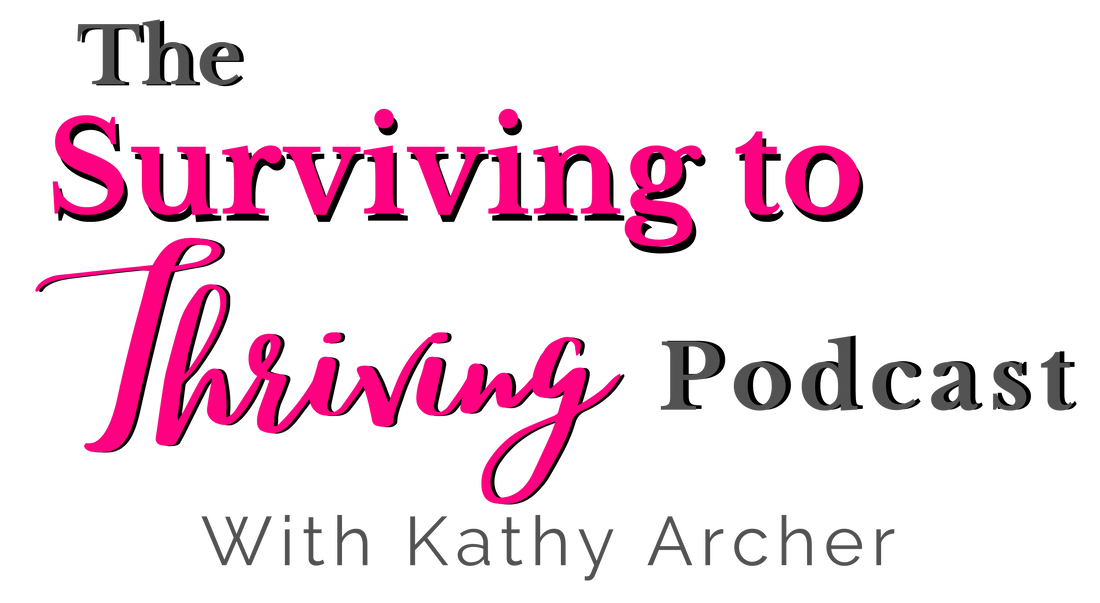
 RSS Feed
RSS Feed
